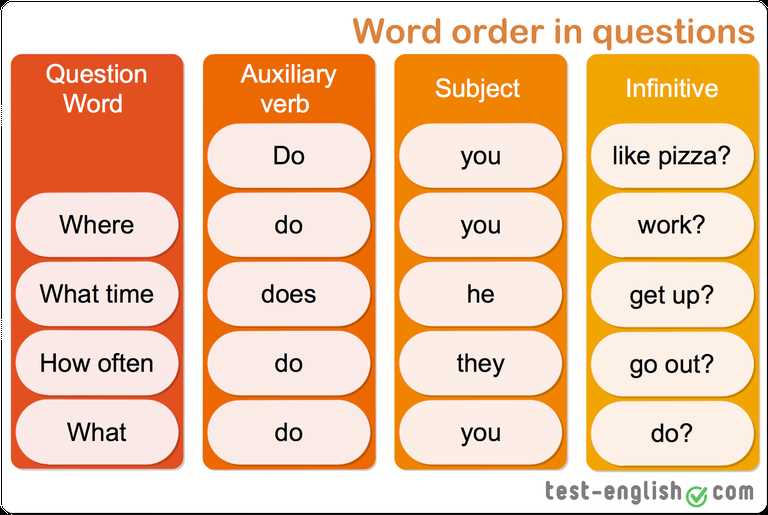
1 Kings 17 is an important and significant chapter in the Bible, providing valuable lessons and insights for readers. This chapter chronicles the story of the prophet Elijah during a time of drought and famine. Through a series of encounters and miracles, God provides for Elijah and teaches him important lessons about faith, trust, and obedience.
In this article, we will explore some of the key questions and answers related to 1 Kings 17. We will delve into the significance of Elijah’s encounters with the widow of Zarephath and the raising of her son from the dead. We will also analyze the lessons that can be learned from Elijah’s own journey of faith during this challenging period.
Some of the questions we will address include: How did God provide for Elijah during the drought? What can we learn from Elijah’s encounter with the widow of Zarephath? How did Elijah demonstrate unwavering faith in God’s provision? How does this chapter serve as a reminder of God’s faithfulness to his people?
Join us as we dive into the depths of 1 Kings 17 and discover the powerful lessons and truths that can be gleaned from this pivotal chapter in the Bible.
What is the story of 1 Kings 17?
The story of 1 Kings 17 is about the prophet Elijah during a time of drought in the land of Israel. The chapter begins with Elijah, a prophet of God, delivering a message to King Ahab, warning him of the upcoming drought as a consequence of the king’s disobedience to God’s laws. As a result of Elijah’s prophecy, God commands him to go to a certain brook where he will be provided with water and ravens will bring him food.
True to God’s word, Elijah goes to the brook and is sustained by the water and food brought by the ravens. However, when the brook eventually dries up due to the drought, God instructs Elijah to go to the town of Zarephath, where a widow will provide for him. Elijah obeys and finds the widow gathering sticks to make a fire to cook her last meal before she and her son die of hunger.
Elijah asks the widow for a drink of water and a piece of bread, but the widow explains her dire situation. Nevertheless, Elijah reassures her that if she follows his instructions and makes him a small loaf of bread first, her jar of flour and jug of oil will not run out until the drought is over. The widow’s faith is tested, but she chooses to trust in God’s prophet and fulfills his request.
As promised, the widow and her household continue to have enough flour and oil throughout the entire duration of the drought. Later, the widow’s son falls ill and dies, and she confronts Elijah, believing that her son’s death is a result of her sins. Elijah takes the boy to his upper room, prays earnestly to God, and God’s compassion restores the boy’s life, demonstrating His power and faithfulness.
The story of 1 Kings 17 showcases the unwavering faith and obedience of Elijah, as well as God’s provision and supernatural intervention in the midst of challenging circumstances. It also highlights the importance of trust and reliance on God’s guidance, even when faced with seemingly impossible situations.
Who was the main character in 1 Kings 17?

The main character in 1 Kings 17 is the prophet Elijah. Elijah was a powerful and faithful prophet of God during the time of King Ahab’s rule in Israel. He was known for his boldness in challenging the false prophets of the Baal and for his unwavering trust in God.
Elijah’s story in 1 Kings 17 begins with him delivering a message from God to King Ahab, predicting a severe drought that would last for several years. As a result of this prophecy, Elijah is forced to go into hiding and depend on God’s provision for his survival. During this time, he is led by God to the Brook Cherith, where he drinks from the brook and is fed by ravens, being sustained miraculously by God.
Elijah’s faithfulness to God and his willingness to follow God’s instructions make him a prominent figure in 1 Kings 17. Despite the challenges he faced, including being hunted by King Ahab and enduring the hardships of the drought, Elijah remains steadfast in his devotion to God and serves as a powerful example of faith and obedience.
- His encounter with the widow of Zarephath, where he asks her for food and water, and then miraculously multiplies her limited resources, showcases God’s power and provision through Elijah.
- Elijah’s ultimate victory over the prophets of Baal on Mount Carmel, where he calls down fire from heaven to consume his sacrifice, demonstrates his unwavering faith in the one true God.
Overall, Elijah’s role as the main character in 1 Kings 17 highlights his faithfulness to God, his trust in God’s provision, and his courage in standing up for God’s truth in the face of opposition. His story serves as an inspirational example for believers today, reminding them of the importance of unwavering faith and obedience in their own lives.
What was the purpose of Elijah’s visit to the widow?
When Elijah first arrived at the city gate, he saw the widow gathering sticks. He called out to her and asked for water and a piece of bread. The widow explained that she had only a handful of flour and a little oil left, and she was preparing to make one last meal for herself and her son before they died from starvation.
Elijah, acting as a messenger of God, gave the widow a reassuring message. He instructed her to make him a small cake first and promised that her jar of flour and jug of oil would not run dry until the day the Lord sent rain on the land. This was a test of the widow’s faith and obedience, as she had to trust in God’s promise and provide for Elijah’s needs before her own.
The purpose of Elijah’s visit to the widow was twofold. Firstly, it was to demonstrate God’s power and provision in the most dire circumstances. By obeying Elijah’s instructions and putting her faith in God’s promise, the widow experienced a miracle as her flour and oil were miraculously replenished day after day.
Secondly, Elijah’s visit was meant to strengthen the widow’s faith. The widow had been on the verge of giving up hope and preparing for her and her son’s imminent death. However, Elijah’s presence and his message of God’s provision gave her a renewed sense of faith and purpose. Through this encounter, the widow learned firsthand that God is faithful and can provide even in the most desperate situations.
How did the widow’s jar of flour and jug of oil miraculously not run out?
In the story of 1 Kings 17, Elijah goes to a widow in Zarephath who is about to prepare a meal for herself and her son, but she only has a handful of flour and a little oil left. Despite the dire circumstances, Elijah instructs her not to be afraid and to go ahead and make him a small cake first. In return, he promises that her jar of flour and jug of oil will not run out until the day the Lord sends rain on the land.
It is a remarkable example of God’s provision and faithfulness. The widow demonstrates great trust and obedience by following Elijah’s instructions, despite the seemingly impossible nature of his promise. In doing so, she puts her faith in God’s ability to provide for her and her son.
- One way to interpret this miracle is that God supernaturally multiplied the flour and oil in the widow’s containers. He sustained their physical needs by continually replenishing their resources, ensuring they never ran out.
- Another interpretation is that God blessed the widow’s faithfulness by miraculously stretching the meager amount of flour and oil she had. Each time she used them, they were miraculously replenished, providing enough for her and her son’s sustenance.
- This story highlights God’s power and care for those who trust in Him, even in the midst of scarcity and uncertainty. It encourages believers to have faith in God’s provision, knowing that He can provide abundantly beyond what we can imagine or expect.
The jar of flour and jug of oil not running out serves as a testament to God’s faithfulness and provision. It reminds us that God can sustain us in times of need and scarcity, and that we can trust Him to provide for our every need. It is a reminder that our trust in God’s provision can unlock miracles and blessings in our lives.
What happened to the widow’s son in 1 Kings 17?
In 1 Kings 17, the story of the widow’s son unfolds as a significant event in the narrative. Elijah had been staying with a widow and her son during a severe drought in the land. The widow was struggling to find enough food for herself and her son, and Elijah had miraculously been providing for them.
Unfortunately, tragedy struck when the widow’s son fell ill and became so sick that his condition deteriorated rapidly. He eventually stopped breathing, and the widow, understandably devastated, cried out to Elijah in despair. She blamed Elijah for her son’s death, believing that his presence had somehow caused this tragedy.
In response to the widow’s distress, Elijah took the boy’s lifeless body and carried it to the upper room where he himself was staying. He then cried out to God, pleading for Him to restore the boy’s life. In an incredible display of God’s power, the Lord heard Elijah’s prayer and breathed life back into the widow’s son.
This miraculous resurrection not only brought great joy and relief to the widow, but it also served as a testament to the power and authority of God. It demonstrated that Elijah was truly a prophet sent by God and that God had the ability to overcome even death itself.
The Significance of the Story of 1 Kings 17
The story of 1 Kings 17 holds great significance in the Bible and provides several valuable lessons for believers today.
1. God’s Faithfulness
The story of 1 Kings 17 displays God’s faithfulness in fulfilling His promises. Despite the severe drought and famine in the land of Israel, God provides for Elijah’s needs by sending ravens to bring him food and sustaining him through the widow’s oil and flour.
2. Trusting in God’s Provision
Through this story, we learn the importance of trusting in God’s provision even in the most desperate situations. Elijah’s faith and obedience to God’s commands enabled him to witness miraculous provisions that sustained him and the widow and her son.
3. The Power of Prayer
The story of 1 Kings 17 also highlights the power of prayer. Both Elijah and the widow turned to God in prayer, and their prayers were answered with miracles. Elijah’s prayer brought rain to end the drought, and the widow’s prayer brought her son back to life.
4. God’s Compassion for the Vulnerable

Throughout this story, we see God’s compassion for the vulnerable and His desire to provide for those in need. He chose to send His prophet to a widow, who was among the poorest and most marginalized in society, and miraculously sustained her and her son during the challenging times.
5. Lessons of Faith and Obedience

Lastly, the story of 1 Kings 17 teaches us valuable lessons about faith and obedience. Elijah’s unwavering faith in God’s promises and his obedience to God’s commands led to great blessings and miracles. This encourages believers to have faith and trust in God’s Word, regardless of the circumstances.
In conclusion, the story of 1 Kings 17 is significant as it emphasizes God’s faithfulness, the importance of trusting in His provision, the power of prayer, God’s compassion for the vulnerable, and the lessons of faith and obedience. It serves as a reminder for believers to rely on God’s promises, trust in His provision, and live a life of faith and obedience to Him.
Q&A:
What is the story of 1 Kings 17?
The story of 1 Kings 17 is about the prophet Elijah and his encounter with a widow in the town of Zarephath.
What is the significance of the story of 1 Kings 17?
The story of 1 Kings 17 is significant because it showcases the supernatural provision of God and His faithfulness to His servants. It also emphasizes the importance of obedience to God’s commands and the power of prayer.
How does the story of 1 Kings 17 demonstrate God’s provision?
In 1 Kings 17, God provides for Elijah and the widow in miraculous ways. Despite a severe drought and famine in the land, Elijah is sustained by ravens who bring him bread and meat. Later, the widow’s supply of flour and oil miraculously does not run out, ensuring their survival during the famine.
What can we learn from the story of 1 Kings 17?
The story of 1 Kings 17 teaches us several lessons. It reminds us to trust in God’s provision even in times of scarcity. It encourages us to be obedient to God’s commands, even when they may seem difficult or unconventional. It also teaches us the power of prayer and the faithfulness of God to answer our prayers.